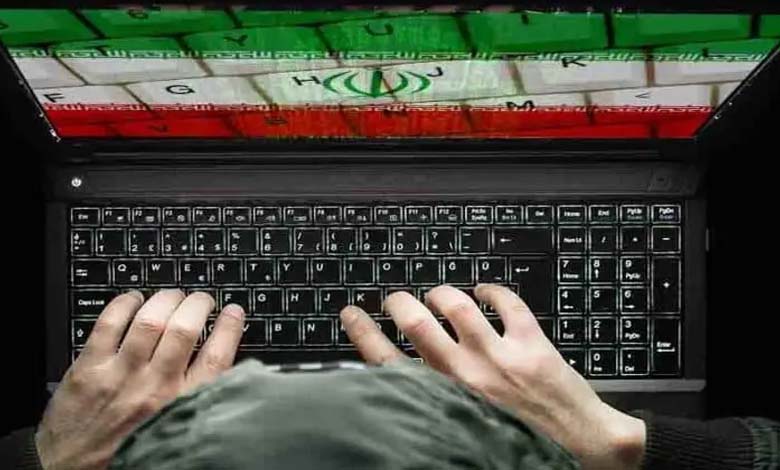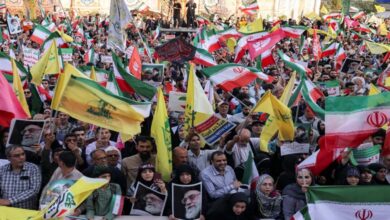Israel Under Fire After Thwarted Cyberattack on Iran

Iranian authorities announced they had foiled a complex and large-scale cyberattack targeting the country’s critical telecommunications infrastructure, just one day after a massive and mysterious explosion shook a major port in Bandar Abbas.
Tehran and other strategic areas in Iran have been experiencing a surge of mysterious attacks and explosions, coinciding with growing tensions surrounding Iran’s nuclear program. Tehran has once again accused Israel of being behind these operations, which seem to strike vital facilities at precise moments, while Israel consistently refrains from commenting on such incidents.
-
Iran May Accept a Deal Limiting Its Nuclear Program if Trump Doesn’t Withdraw Again
-
Iran’s Nuclear Program Has Crossed ‘All Red Lines’, Says Israel PM
In the latest development, Iranian authorities announced on Sunday that they had successfully thwarted a sophisticated cyberattack on the nation’s telecom infrastructure. Behzad Akbari, head of the Telecommunications Infrastructure Company, described the attack as “one of the most complex” and stated that precautionary measures had been taken, although he provided no specific details about the source or targets of the attack.
This announcement followed a mysterious explosion at Bandar Abbas Port — Iran’s largest container port — on Saturday evening, causing extensive damage. The explosion occurred just as Tehran was engaged in a third round of negotiations with Washington in Oman regarding its nuclear program. While some reports attribute the blast to stored chemical materials, suspicions persist regarding the possibility of external sabotage, especially given the intense political pressures Iran is currently facing.
-
Iran’s Nuclear Program Back in the Spotlight… and Trump Seeks Political Breakthrough
-
Iran’s Nuclear Program: Tehran Awaits Trump’s Message via an “Arab Country”
These incidents are not isolated from the broader tense political climate. As in previous cases, Tehran renewed its accusations against Israel, despite the lack of publicly presented evidence. Historical patterns of confrontation between the two sides lend credibility to these accusations: in 2021, Iran suffered a massive cyberattack against its fuel distribution network, followed by further attacks in 2023 that disabled nearly 70% of the country’s gas stations — an operation attributed to a group called “Predatory Sparrow,” which cited retaliation for Iranian regional activities.
Additionally, the assassination of prominent nuclear scientist Mohsen Fakhrizadeh in November 2020 — widely attributed to Mossad — and subsequent incidents such as the explosion at Parchin military complex in May 2022, and a drone attack on a military facility in Isfahan in early 2023, illustrate a persistent pattern.
-
“Iran’s Nuclear Program”: IAEA Condemnation and Tehran’s Response
-
Iran Proposes Deal on Its Nuclear Program to Avoid Western Pressure
Meanwhile, Israel has made no secret of its stance on Iran’s nuclear ambitions. Prime Minister Benjamin Netanyahu recently stated that Iran’s nuclear infrastructure must be “completely dismantled,” arguing that merely preventing Tehran from developing a nuclear weapon was not enough. His remarks echo repeated U.S. warnings of “open options” should diplomacy fail.
Observers see these cyber and physical attacks as direct pressure tactics aimed at pushing the Iranian leadership to make tangible concessions regarding its nuclear program. The timing of these incidents during nuclear negotiation rounds reflects a recurring pattern of striking strategic infrastructure to create both internal and external pressure on Tehran’s decision-makers.
-
Troubles and Crises: International Economy Affected by Iran and Israel Events
-
U.S. Report: Israel to Launch an Attack on Iranian Nuclear Sites by Mid-Year
The lack of official claims of responsibility suggests these operations are intended as indirect pressure tools, destabilizing Iran without triggering open military conflict. However, the repeated breaches also reveal concerning vulnerabilities within Iran’s critical infrastructure, potentially undermining public confidence in the government’s ability to protect vital assets.
As Israeli activities intensify both inside and outside the region, the risk of escalation remains high, especially if Israel perceives Iran to be nearing the “nuclear threshold.” Analysts warn that continued attacks could push Iran toward more aggressive responses, either through cyber retaliation or by expanding proxy conflicts across the region.












